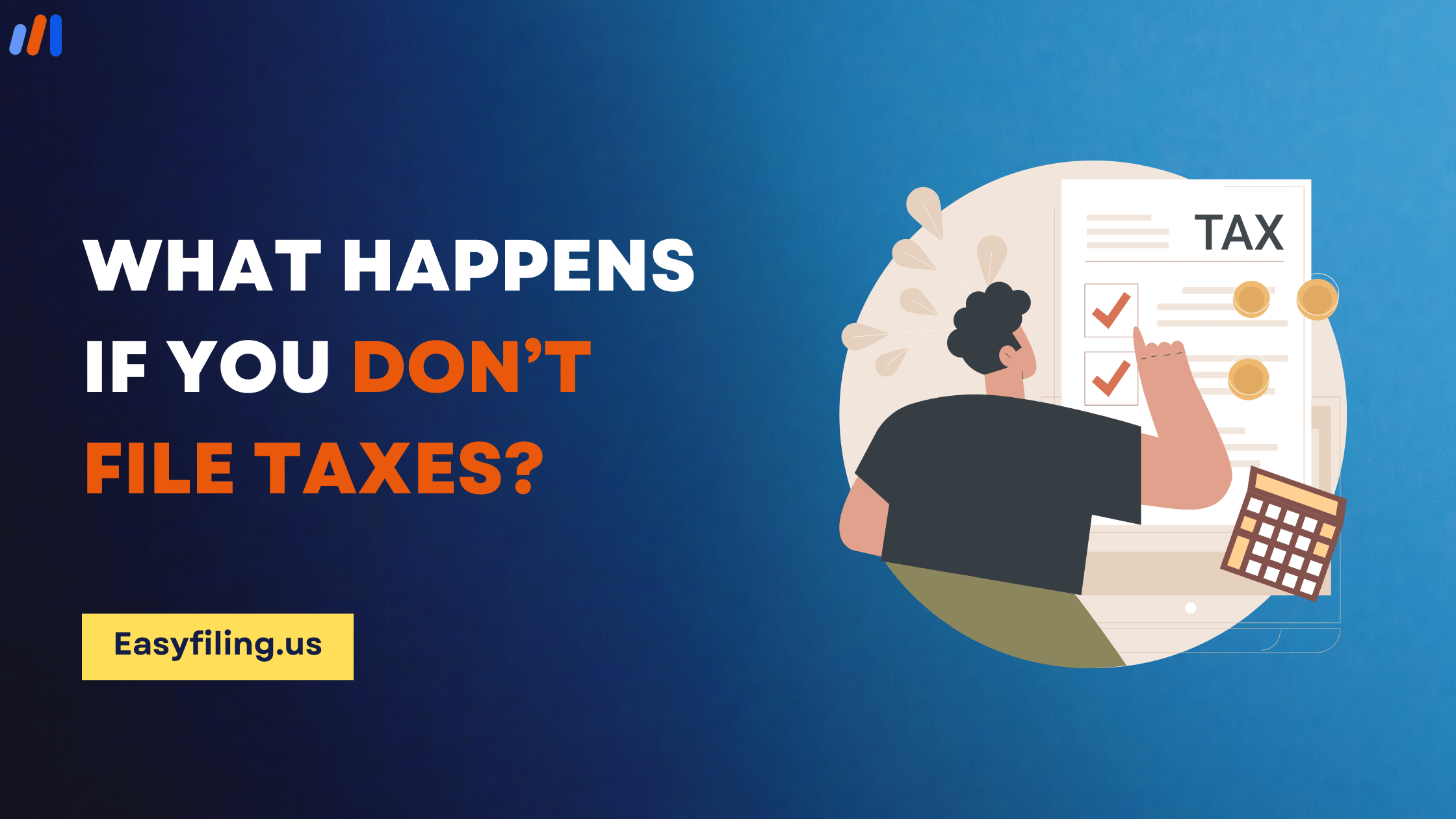Ever been curious about the consequences of neglecting your taxes? Or maybe, you have been consciously ignoring it and have waited for it to resolve by itself? Let’s explore the murky waters of tax evasion and look at all the repercussions that await those brave enough to cross the borders of the taxman.
The IRS or Internal Revenue Service is the most powerful tax collection agency in the United States. It is a formidable institution that can impose hefty fines and even charge certain offenses with crimes. So before you embark on that risky venture, let us look at what tax evasion consequences you are likely to face in detail.
Apart from the financial losses that non-compliance may cause, other legal issues can arise as a result of not filing or paying taxes. In this blog post, we will try to evaluate the possible consequences in the form of penalties, the legal actions that may follow these situations, and how to deal with them to avoid these unpleasant situations.
Penalties and Interest
Failure-to-File Penalty
When a taxpayer does not submit their tax return on its due date, normally, April 15, the IRS will impose a failure-to-file/late-filing penalty. Most of the time the individual will incur a penalty consisting of the percentage of unpaid tax in the amount of 5 percent for every month, or up to 25% of the total amount of unpaid taxes, or less but not more than 25% on unpaid tax balances. This allows it to accumulate quickly, underscoring the need to file to avoid the extra costs.
Failure-to-Pay Penalty
There is usually a failure to pay penalty which occurs when a taxpayer does not remit the payment due on the date specified even after filing for their tax return. This is usually 0.5% of your unpaid taxes for each month or part of a month up to 25%. Although this penalty is lower than the failure to file penalty, it is such a slow killer that it will most definitely compound your debt over some time in the future.
Interest Charged on Taxes Payable Only
Moreover, the IRS manages to collect interest on unpaid taxes from the date of filing tax returns until full payment. A fine is imposed if the tax is not paid by the due date or 3% above the US Treasury’s quarterly short-term target interest rate. You must settle the unpaid taxes so that you do not find the interest on the delinquent taxes adding more pressure on you.
Loss of Refund
Possessing Refund
If you are due a refund and you do not file the tax return eligible for a refund within three years of the due date, you lose that right entirely. This simply means that there is money that ought to be yours, and when you do not make a claim for it, the government will keep it. it is helpful to submit your return even if you don’t have any obligations or if you expect to receive the money back.
Loss of Earned Income Tax Credit (EITC)
Furthermore, failure to file can also result in the ineligibility to receive the earned income tax credit which is an important source of income directed towards low to moderate-income working individuals with children. The EITC decreases the tax liability owned, or in some instances, produces a refund. Failure to capture this credit translates to a loss of cash that could have been recouped in these times of financial constraints.
Legal Consequences

Tax Liens
If you have tax arrears, the IRS can go against you by levying taxes on your property. A tax lien is a legal interest on real estate and personal property that meets the government’s security on these assets. This can severely impact your ability to sell or refinance property and damage your credit score.
Tax Levies
A levy is a legal confiscation of your assets to recover a tax owed. In this regard, the IRS has the power to impose wage garnishment, attach savings accounts, and repo and liquidate cars, houses, and other goods. Such extreme actions could bring an adverse financial situation which is why it is important to resolve taxes due as soon as possible.
Criminal Charges
In extreme circumstances, criminal charges can be brought for failing to file a tax return. A tax evasion crime can be filed against you, which can also lead to IRS criminal charges against you. Conviction can lead to huge monetary penalties or imprisonment of around five years. Even though this is usually for the worst of the worst, filing taxes comes with a zero-tolerance policy.
Loss of Benefits
Social Security Benefits
Social Security benefits are, however, at risk with additional income that has not been accounted for. In short, benefits are determined by how much income they report to the Social Security system, and if you do not submit any income taxes, you may be granted fewer benefits than you deserve. This may have a more significant impact on your retirement plans and general sufficiency.
Impact on Loans and Mortgages
Tax returns are very critical when applying for loans and mortgages. Not filing taxes can affect your chances of getting such financing to buy a house, or car or even getting funds for a business, which raises alarm on your financial capability. This can narrow down your financial chances and limit your life goals.
Tax Filing Forms and Deadlines
Here are some common IRS tax filing forms and their deadlines:
- Individual Income Tax Return
- Deadline: April 15 (unless it falls on a weekend or holiday, then the next business day)
- Amended U.S. Individual Income Tax Return
- Deadline: Within three years from the original filing date or within two years from the date you paid the tax, whichever is later
- Wage and Tax Statement
- Deadline for employers to send to employees and the Social Security Administration: January 31
- Miscellaneous Income
- Deadline for payers to send to recipients and the IRS: January 31 for most non-employee compensation
- Application for Automatic Extension of Time to File U.S. Individual Income Tax Return
- Deadline: April 15
- U.S. Corporation Income Tax Return
- Deadline: April 15 for calendar year corporations (or the 15th day of the 4th month following the end of the corporation’s fiscal year)
- Employer’s Quarterly Federal Tax Return
- Deadlines: April 30, July 31, October 31, and January 31
What to Do If You Haven’t Filed
File as Soon as Possible
The sooner you file your overdue tax returns, the better. This will help minimize penalties and interest and get you back on track. Filing even late is better than not filing at all, as it demonstrates your willingness to comply with tax laws.
Seek Professional Help
Remember that there are other ways of filing your tax returns aside from just doing it yourself. There is no need to get overwhelmed, get a tax return advisor.
Payment Plans
In case of tax liability to the IRS which you are unable to pay, you need not worry. There are provisions for tax payment plans which allow time to pay the tax amount due in installments. These options assist in making it easier for you to pay your taxation debt and prevent harsher collection methods from being instituted again.
Voluntary Disclosure Program
You will not be putting yourself at unnecessary risk if you think that an IRS problem is coming your way about taxes. Apart from being suicidal, this helps individuals to settle taxes they owe the Internal Revenue Service, especially the ones that were unpaid for a long period due to compliance issues.

Conclusion
Not filing your taxes increases the chances of negative consequences such as financial penalties or even imprisonment. It is important to ensure that the taxman is satisfied at all times to avoid such troubles.
Tax filing may seem more hostile than usual and actions may be hard to take especially if a client does not know what form to start with. However, it is still possible to avoid this kind of embarrassment if one makes the appropriate decisions.
File Your LLC Today
25$ off with a coupon
Lock in EasyFiling's transparent rates and get lifetime compliance support at no extra cost.
Get Started Now







